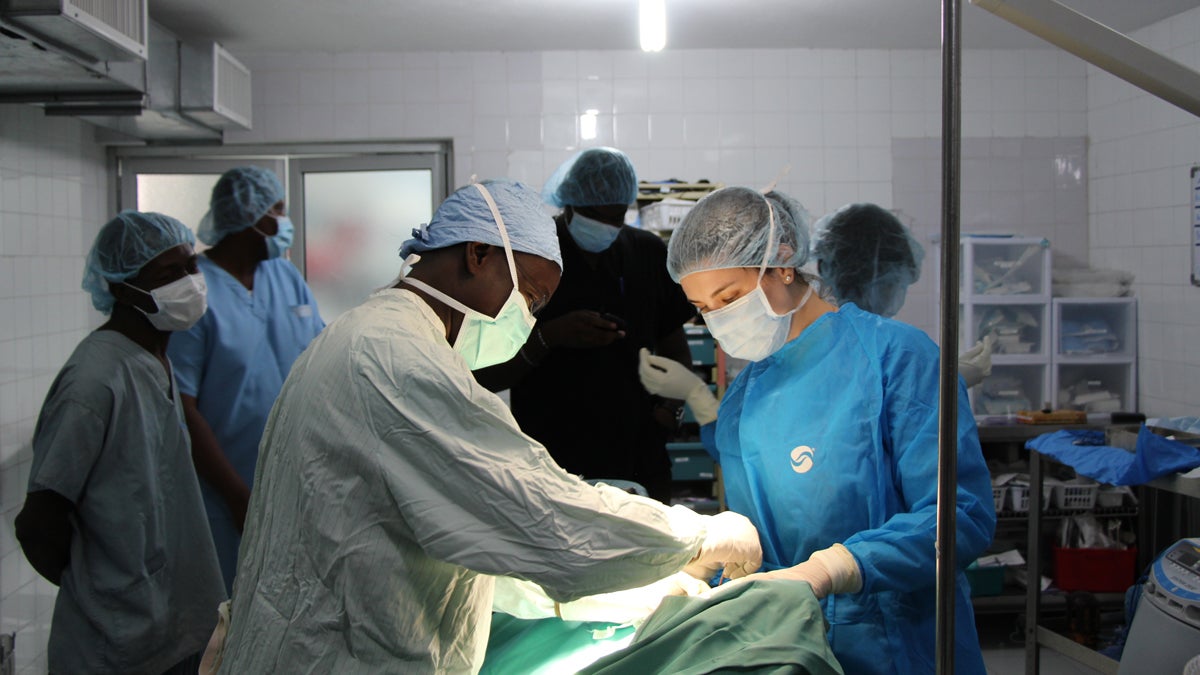Practicing medicine in Haiti, when your best isn’t enough
Listen
Hayley Goldbach spent time practicing medicine in Haiti. (Courtesy of Hayley Goldbach)
Is care provided by a total rookie better than no care at all? A first-year pediatrics resident in Philadelphia speaks about an experience she had while working abroad.
Is care provided by a total rookie better than no care at all? Listen above to Hayley Goldbach, a first-year pediatrics resident in Philadelphia, tell a story about an experience she had while working abroad. The recording is from a recent health inequity story slam at the University of Pennsylvania.
—
I met a woman who had just given birth on the steps of a hospital in Haiti with no trained obstetricians nearby. A day later, I met a young man at the same hospital with a facial knife wound which no one felt competent enough to close.
I was a trainee and, in my opinion, I had insufficient experience to suture the wound, but I was the one with the most recent training and experience in that arena.
So what do you do if what you have to give isn’t enough? As a medical professional interested in global health, it’s a question I had to confront early and often. “Do what you can,” they say. But your patients deserve more. They deserve more than expired medical supplies, trainees unaccustomed to the countries they are practicing in, power outages, and shortages of clean water. But avoiding such situations would require turning a blind eye to some of the world’s most needy and wonderful human beings.
In my story, I struggle to balance the principles of non malfeasance (do no harm) with beneficence (essentially, “do right” by your patient).
As a doctor, I never want to step outside my comfort zone in a way that might provide a less-than-optimal outcome for any person I have the privilege to treat. But stepping outside your comfort zone is an everyday occurrence in medicine. And is your comfort more important than the welfare of your patient?
Ultimately, it comes down to this: What do you do when a young man looks you in the eye and you are the best he can get? What would you do?
WHYY is your source for fact-based, in-depth journalism and information. As a nonprofit organization, we rely on financial support from readers like you. Please give today.



